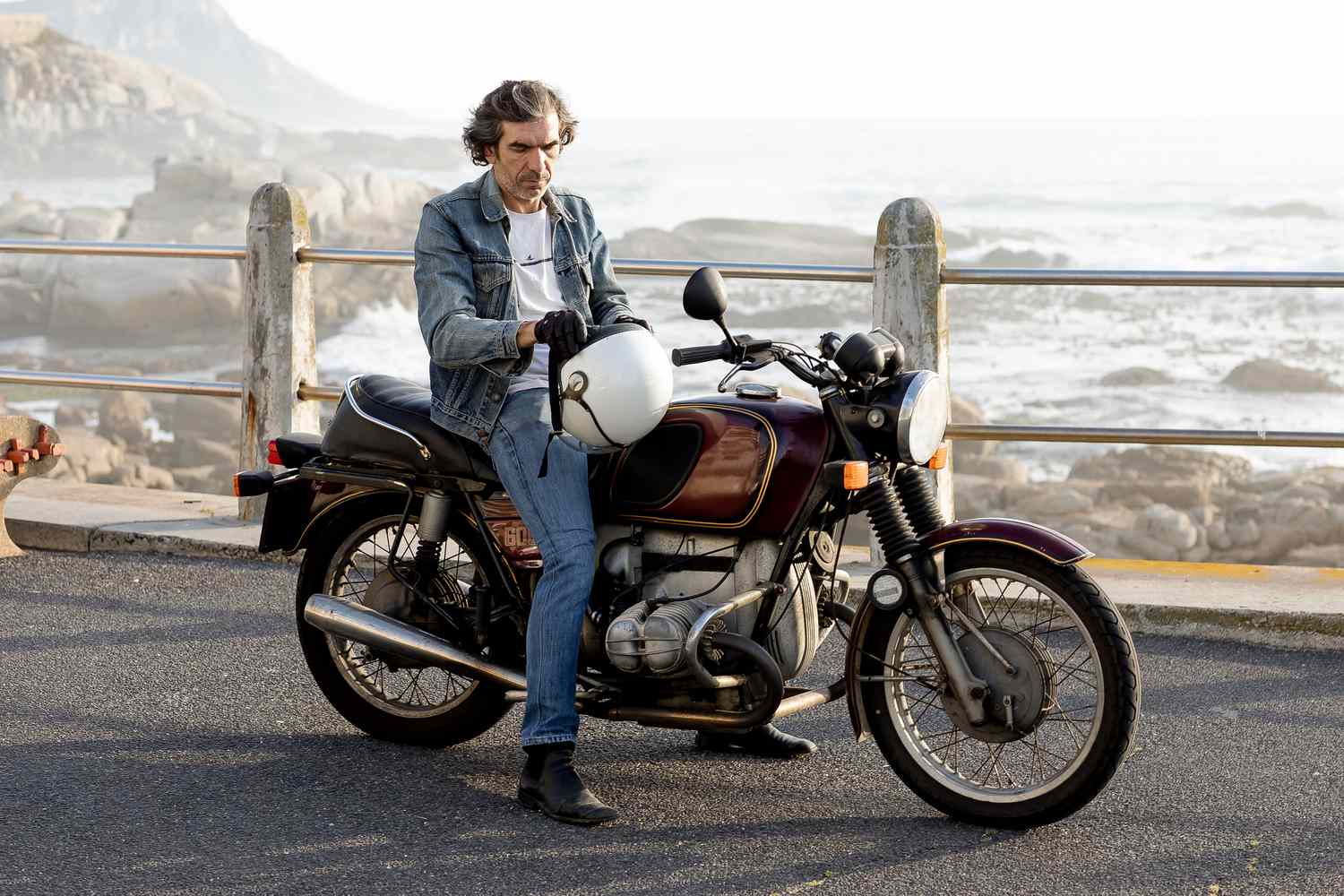Home>Finance>How To Get A Start Up Business Loan With Bad Credit


Finance
How To Get A Start Up Business Loan With Bad Credit
Modified: December 30, 2023
Looking for finance options to secure a start-up business loan with bad credit? Discover expert tips and strategies to overcome credit challenges and get the funding you need.
(Many of the links in this article redirect to a specific reviewed product. Your purchase of these products through affiliate links helps to generate commission for LiveWell, at no extra cost. Learn more)
Table of Contents
Introduction
Starting a new business is an exciting endeavor, but it often requires a significant amount of capital. For many entrepreneurs, securing a start-up business loan is a crucial step in turning their vision into a reality. However, if you have bad credit, obtaining financing may seem like an insurmountable challenge. Thankfully, there are options available for entrepreneurs with less-than-perfect credit scores.
In this article, we will explore how to get a start-up business loan with bad credit. We will discuss the importance of understanding the different loan options available and highlight the factors to consider before applying for a loan. Additionally, we will provide step-by-step guidance on the application process and offer alternative funding options for those who are unable to secure a traditional loan.
While having bad credit can present some hurdles, it does not mean you are without options. By following the strategies outlined in this article, you can improve your chances of securing the funding you need to launch your start-up.
Understanding Start-Up Business Loans
Start-up business loans are specifically designed to provide funding to entrepreneurs who are launching a new business or expanding an existing one. These loans can help cover a variety of expenses, such as purchasing equipment, hiring employees, securing office space, and marketing.
When it comes to start-up business loans, there are several types to consider:
- Term Loans: Term loans are a common type of business loan where you receive a lump sum of money upfront and repay it over a set term, typically with fixed interest rates. This type of loan can be used for various purposes, such as purchasing assets or financing working capital.
- SBA Loans: Small Business Administration (SBA) loans are backed by the U.S. government and are available to qualifying small businesses. These loans typically offer longer repayment terms and lower interest rates compared to traditional loans.
- Business Lines of Credit: A business line of credit is a revolving credit account that allows you to borrow money up to a predetermined limit. You only pay interest on the funds you use, making it a flexible financing option for start-ups.
- Equipment Financing: If your start-up requires specific equipment to operate, equipment financing can be an excellent option. With this type of loan, the equipment itself serves as collateral, making it easier to qualify.
- Invoice Financing: If your start-up is invoicing clients for goods or services, invoice financing allows you to receive a cash advance on outstanding invoices. This can help improve cash flow and provide funding without taking on additional debt.
Before applying for a start-up business loan, it’s essential to assess your needs and determine the best type of loan for your specific circumstances. Research the eligibility requirements, interest rates, repayment terms, and any additional fees associated with each loan option.
Keep in mind that obtaining a start-up business loan with bad credit may be more challenging, as lenders typically consider creditworthiness when evaluating loan applications. However, there are strategies you can employ to improve your chances of approval, which we will discuss in detail later in the article.
Factors to Consider Before Applying for a Start-Up Business Loan
Before applying for a start-up business loan, it’s important to consider several factors that can impact your ability to secure financing:
- Credit Score: Your credit score plays a significant role in determining your eligibility for a loan. Lenders typically prefer borrowers with good credit, as it demonstrates a history of responsible financial management. However, even if you have bad credit, there are still loan options available. Just be prepared for potentially higher interest rates or stricter terms.
- Business Plan: A comprehensive and well-crafted business plan is essential when seeking financing. Your business plan should outline your goals, target market, competition, and financial projections. Lenders want to see that you have a clear vision for your business and a plan for how you will use the funds.
- Collateral: Some loans may require collateral, such as property, equipment, or inventory, to secure the loan. Collateral provides lenders with reassurance that they can recoup their investment if you default on the loan. If you don’t have valuable collateral, explore options like unsecured loans or alternative funding sources.
- Cash Flow and Financial History: Lenders will assess your business’s financial health, including cash flow and financial history. They want to see that your business has a steady stream of revenue and a history of responsible financial management. Prepare financial statements, such as profit and loss statements, balance sheets, and cash flow projections, to demonstrate your business’s financial stability.
- Industry and Market Factors: Consider the current state of your industry and market conditions. Lenders may evaluate the potential profitability and stability of your business based on the industry’s performance. Being aware of industry trends and market demands can help strengthen your loan application.
By carefully considering these factors, you can accurately assess your readiness to apply for a start-up business loan. It’s important to note that meeting these criteria does not guarantee loan approval, but it does increase your chances of securing financing for your start-up.
Steps to Get a Start-Up Business Loan with Bad Credit
If you have bad credit but still need funding for your start-up, there are steps you can take to improve your chances of securing a loan:
- Review your credit report: Start by obtaining a copy of your credit report from the major credit bureaus. Carefully review the report for any inaccuracies or discrepancies that may be negatively impacting your credit score. If you identify any errors, dispute them with the credit bureaus to have them corrected.
- Create a detailed business plan: Develop a comprehensive business plan that outlines your business’s goals, target market, competition, marketing strategies, and financial projections. A well-crafted business plan can help lenders see the potential of your start-up, even if your credit history is less than perfect.
- Seek alternative lenders: Traditional banks may be more stringent in their lending criteria. Consider seeking out alternative lenders, such as online lenders, community development financial institutions (CDFIs), or microlenders, who may have more flexibility in working with entrepreneurs with bad credit.
- Create a strong pitch: When approaching lenders, be prepared to articulate your start-up’s value proposition and demonstrate how you plan to overcome any credit challenges. Highlight the unique aspects of your business and emphasize your ability to repay the loan through strong revenue projections or collateral options.
- Explore secured loans: Secured loans require collateral, such as equipment or inventory, to secure the loan. Having assets to offer as collateral can increase your chances of approval and may result in more favorable loan terms.
- Consider a co-signer or partner: If your own credit is not strong, consider partnering with someone who has a good credit history or may be willing to co-sign the loan. This can provide added assurance to lenders and improve your chances of obtaining financing.
- Build business credit: Even if your personal credit is not ideal, you can still work on building your business credit. Establish separate business accounts, such as a business credit card or line of credit, and make consistent, on-time payments. This can help improve your business’s creditworthiness over time.
Remember, obtaining a start-up business loan with bad credit may require patience and persistence. It’s crucial to thoroughly research your options, compare loan terms and interest rates, and carefully consider the potential impact on your business’s finances. By taking these steps and exploring alternative financing options, you can increase your chances of securing the funding you need for your start-up.
Alternative Options for Start-Up Funding
If securing a traditional start-up business loan with bad credit proves challenging, there are alternative funding options you can explore:
- Bootstrapping: Consider self-funding your start-up through personal savings, credit cards, or contributions from friends and family. While this may require personal financial commitments, it allows you to maintain full control over your business and avoid accruing debt.
- Crowdfunding: Crowdfunding platforms, such as Kickstarter or Indiegogo, allow you to raise funds from a large number of individuals who believe in your business idea. Through rewards-based crowdfunding, you can offer incentives to backers in exchange for their financial support.
- Angel Investors: Angel investors are individuals or groups who invest in promising start-ups in exchange for equity ownership. These investors often provide not only funding but also valuable expertise, mentorship, and industry connections.
- Business Incubators and Accelerators: Joining a business incubator or accelerator program can provide access to funding, resources, and guidance for start-ups. These programs typically offer mentorship, networking opportunities, and access to potential investors.
- Grants and Competitions: Research grants and competitions specific to your industry or location. Many organizations and government agencies offer grants and prizes for start-ups with innovative ideas or projects that align with their objectives.
- Microloans: Microloans are small loans offered by CDFIs or non-profit organizations to help small businesses get started or grow. These loans are typically easier to qualify for and have more flexible terms compared to traditional loans.
- P2P Lending: Peer-to-peer lending platforms connect borrowers directly with individual lenders who are willing to invest their money. These platforms often have more relaxed lending criteria and can be a viable option for start-ups with bad credit.
Each alternative funding option has its own advantages and considerations, so it’s important to research and evaluate which solution aligns best with your start-up’s needs and goals. Remember to consider the terms, interest rates, repayment schedules, and potential impact on your ownership and control of the business.
While alternative funding sources may not provide the same amount of capital as a traditional loan, they can still be instrumental in helping you launch or expand your start-up without necessarily relying solely on traditional lenders.
Tips for Improving Your Chances of Getting a Start-Up Business Loan with Bad Credit
If you have bad credit but still want to increase your chances of obtaining a start-up business loan, consider the following tips:
- Work on improving your credit: Take steps to improve your credit score by making consistent and on-time payments, reducing existing debt, and addressing any errors on your credit report. While this may take time, it can significantly enhance your creditworthiness.
- Build a strong business plan: Craft a detailed and compelling business plan that clearly outlines your start-up’s goals, target market, competitive advantage, and financial projections. A well-prepared business plan can demonstrate your commitment and potential, compensating for a less-than-ideal credit history.
- Highlight your business experience and expertise: Emphasize your relevant industry experience and expertise to showcase your ability to successfully manage and grow your start-up. Lenders may be more willing to overlook past credit issues if they see a strong business acumen.
- Seek a guarantor or co-signer: Consider finding a guarantor or co-signer with good credit who is willing to take on the responsibility of the loan if you default. This provides lenders with an added layer of security and can improve your chances of approval.
- Build relationships with lenders: Establish a relationship with potential lenders before applying for a loan. Attend networking events, join industry associations, and connect with lenders who specialize in working with entrepreneurs with bad credit. Building a rapport and demonstrating your commitment can make a positive impression.
- Showcase your cash flow and revenue potential: Highlight your start-up’s revenue potential and ability to generate cash flow. Provide accurate and up-to-date financial statements, such as profit and loss statements and cash flow projections, to illustrate your business’s stability and growth potential.
- Offer collateral: If possible, offer valuable assets as collateral to secure the loan. Collateral provides lenders with a sense of security and can offset the risk associated with your credit history.
- Start small: Consider applying for a smaller loan initially to establish a positive credit history for your start-up. Making consistent, on-time payments on a smaller loan can help improve your credit score and make future lending opportunities more accessible.
Remember, every lender has different criteria and preferences, so it’s crucial to research and find the ones that are more likely to work with entrepreneurs with bad credit. Be transparent about your credit history, address any concerns raised by lenders, and present yourself as a responsible and determined entrepreneur.
Keep in mind that while bad credit may present challenges, it does not mean that you cannot secure funding for your start-up. By implementing these tips and exploring your options, you can improve your chances of obtaining a start-up business loan and turning your entrepreneurial dreams into a reality.
Conclusion
Obtaining a start-up business loan with bad credit may require extra effort and strategy, but it is not impossible. By understanding the various loan options available, considering important factors before applying, and following the necessary steps, you can improve your chances of securing the funding you need to bring your entrepreneurial vision to life.
Remember to review your credit report, create a comprehensive business plan, and explore alternative funding sources if traditional loans are hard to obtain. Building relationships with lenders, highlighting your business expertise, and offering collateral can also increase your odds of approval.
Furthermore, take steps to improve your credit over time by making consistent and on-time payments, reducing existing debt, and addressing errors on your credit report. Creating a positive credit history for your business can open doors to more favorable financing options in the future.
Even if securing a start-up business loan proves challenging, don’t forget about alternative funding options such as bootstrapping, crowdfunding, angel investors, and grants. These options can provide the necessary capital to launch or expand your start-up without solely relying on traditional lenders.
Ultimately, with perseverance, a well-prepared business plan, and a strong pitch, you can overcome the obstacle of bad credit and obtain the financing you need to turn your entrepreneurial dreams into a successful reality. Stay proactive, remain optimistic, and continue to seek out opportunities to fund your start-up even in the face of adversity.














